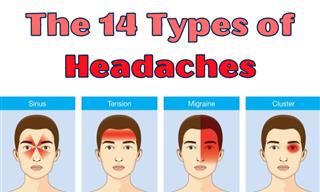More than 30 million people in the world are currently suffering from Alzheimer's disease, and to date, there is still no cure for it, only treatments that help reduce its symptoms. However, scientists are now working on different ways to cure the disease, and as a result of various experiments and observations, they get to know more about it, including the factors that may predict it even before its familiar symptoms appear.
In a recent October 2018 study at Oxford University, evidence was found that the herpes virus was closely linked to Alzheimer's disease and that a drug that treated the virus could also help treat the devastating nerve disease. Because of the great importance of the issue and its impact on the health of adults today and ourselves in the future, it is recommended that you continue reading to learn more about the relationship between herpes and Alzheimer's.

What is the herpes virus?
Herpes is a whole family of viruses. Herpes simplex is manifested in the form of blisters in the skin, lips, eyelids, or genitals. Herpes simplex is also divided into 2 types, with herpes simplex 1 being the most common type and causing blisters on the lips, while herpes simplex 2 is considered to be a sexually transmitted disease.
Herpes simplex is a very contagious disease, and it passes through skin to skin contact or contact with objects that are infected from shared use, such as lipstick. When infected, the hereditary material is stored in the nervous system and tends to erupt with its familiar symptoms when the body is under stress, during transitional seasons, during illnesses accompanied by fever, and during periods of hormonal changes in the body.

What is the relationship between herpes and Alzheimer's?
As noted, the herpes virus attacks the nervous system and remains dormant until it erupts. In 1991, a study in Manchester found that in many elderly people the virus was also found in the brain and in 1997 it was found that there was a link between its presence in the brain and the risk of Alzheimer's in people with a gene called APOE4, which is known to increase the risk of Alzheimer's disease.
According to the experts' hypothesis, the presence of the virus in the brain and its recurrent eruption cause cumulative damage, because the chances of suffering from Alzheimer's according to the observations are 12 times higher for APOE4 carriers who also suffer from herpes simplex 1, compared to people who do not have both cases together.
However, another study conducted at the University of Manchester and a study in Chile found that people suffering from the herpes virus suffer from increased production of amyloid beta-protein and a very high amount of tau protein, which also endanger the brain and body in Alzheimer's disease.

Researchers believe that when the body gets older and the immune system weakens, the herpes virus can penetrate the brain through the nervous system, where it creates a dormant infection that is activated in stressful situations or when the brain suffers from other infections. Repeated outbreaks of the virus cause cumulative damage to the infected cells of the brain, leading eventually to Alzheimer's in people who have inherited the disease. People with a family history of Alzheimer's disease, who are also carriers of the herpes virus, may be particularly likely to suffer from Alzheimer's disease, even in their youth. It is therefore important to know the warning signs of Alzheimer's disease so that it can be identified in time and treated appropriately.
The significance of the findings regarding innovative treatment for Alzheimer's disease
Although all these findings sound very worrisome, they are also somewhat encouraging, because recent research indicates that Alzheimer's disease can be treated, or at least delayed, with treatment for the herpes virus. Fortunately, research has already been done on the subject in Taiwan and it shows promising results - anti-herpes drug treatment has indeed helped to prevent Alzheimer's disease in the subjects. More research is underway, but Alzheimer's disease may be avoided in the near future with a simple herpes virus vaccine.
 Go to BabaMail
Go to BabaMail



























